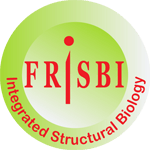FRISBI


Unavailable for the moment
Microscale Thermophoresis (MST) is a powerful innovative technology for the analysis of biomolecules. It is the directed movement of particles in a microscopic temperature gradient. MST detects changes of the hydration shell, of biomolecules due to changes in their structure/conformation results in a relative change of movement along the temperature gradient and is used to determine binding affinities, binding sand activity kinetics. It allows measurement of interactions directly in solution without the need of immobilization to a surface (immobilization-free technology) in any buffer. This technology has several advantages over other standard techniques to analyze interactions, such as surface plasmon resonance (SPR) and isothermal microcalorimetry (ITC). It can measure affinities in free solution without surface immobilization with low sample consumption and within sub-nM to mM range. MST is also applicable to a wide size range of biomolecules (ions, proteins,…) and experiments can be carried out with a broad range of solution conditions, including detergent mixtures.
The NanoTemper´s Monolith NT.115 utilizes Microscale Thermophoresis to enable real-time, immobilization free analysis of biomolecule interactions providing information on the binding affinity with high accuracy and sensitivity, stoichiometry and aggregation properties in any buffers and complex biological liquids including blood serum and cell lysate. The Monolith NT.115 instruments use a capillary format that reduces the overall costs and the setup costs which are typically associated with standard molecular interaction technologies. Infrared-lasers are used to achieve precise microscale temperature gradients within thin glass capillaries that are filled with a solution of choice. The fluorescence of molecules is used to monitor the motion of molecules along these temperature gradients. The fluorescence can be either fluorescent protein (e.g. GFP) or of an attached dye.
The NanoTemper´s Monolith NT.115 instruments (Blue-Green) will be accessibe in the summer 2014.